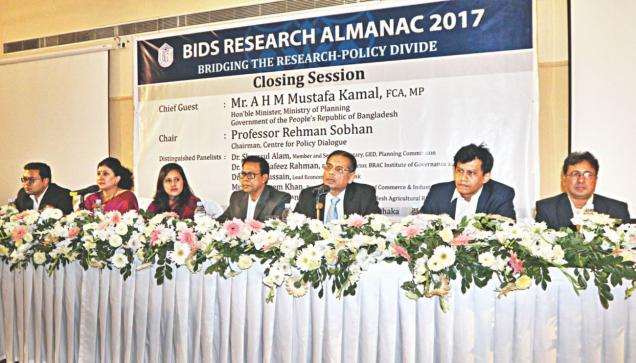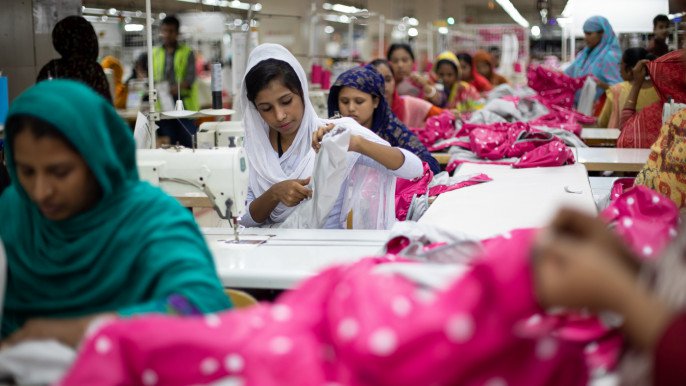Published in The Daily Star on December 08, 2017

Photo: BIDS/ The Daily Star
The Bangladesh Economic Zones Authority and the Bangladesh Export Processing Zones Authority should merge with each other as both are carrying out same types of tasks, said an economist yesterday.
Both the Beza and the Bepza are government-sponsored investment facilitators, helping domestic and foreign investors in setting up factories in Bangladesh. They also operate under the Prime Minister’s Office.
“They should be merged for smooth operations,” said Mohammad Yunus, senior research fellow of the Bangladesh Institute of Development Studies (BIDS).
Recently, the government merged the Privatisation Commission and the Board of Investment into Bangladesh Investment Development Authority, as both had been doing almost the same tasks.
“The merger is important because sometimes the government gives separate policies though both the bodies are doing the same jobs,” Yunus said.
According to the researcher, either the Beza or the Bepza can lead the proposed single body.
Currently, there are eight EPZs run by the Bepza. On the other hand, the Beza is working to develop more than 100 special economic zones in different districts to attract investment from home and abroad.
Between 1983-84 and 2014-15, local employment in the EPZs increased 19 percent per annum, said Yunus while presenting a paper on the second and final day of the BIDS Research Almanac 2017 at the Lakeshore Hotel in Dhaka.
The contribution of the EPZs in new job creation went up from 17,540 in 2013-14 to 32,967 in 2014-15 with an annual increase of 87.95 percent, Yunus said.
In the session, Nazneen Ahmed, another senior research fellow of the BIDS, called for more fairness in the global supply chain of apparel items so both manufacturers and retailers benefit from the business.
Under the current model, only a few international buyers are making more profit while Bangladesh’s manufacturers are getting less, she said.
The economist said profit margin of local garment exporters has declined but it has not reached the level they claim.
She said profit margin for the garment exporters varies between 9 percent and 11 percent, not the 2 percent as claimed by the garment sector. Prof Mustafizur Rahman, a distinguished fellow of the Centre for Policy Dialogue, moderated the session.
In the concluding session, AK Khan, president of the Dhaka Chamber of Commerce and Industry, called for budget for carrying out quality research on different sectors.
The research should be market-driven and the private sector should be engaged so that they can contribute to national policy formulation, he said.
The entrepreneur said Bangladesh spends only 2.8 percent of the gross domestic product on infrastructure development whereas South Korea spent 9.5 percent between 1960 and 1990.
Similarly, Vietnam spent 12 percent of its GDP to develop infrastructure between 1980 and 1990, he said. In the session, Zahid Hossain, lead economist of the World Bank Dhaka office, said if data are not credible one can’t carry out research.
“In the absence of credible data, we are stereotyped to the policymakers and the vice versa,” Hossain said.
Sultan Hafeez Rahman, executive director of the Brac Institute of Governance and Development, said Bangladesh needs large amount of data for quality research.
Rehman Sobhan, chairman of the CPD, moderated the concluding session.
 CPD RMG Study Stitching a better future for Bangladesh
CPD RMG Study Stitching a better future for Bangladesh



